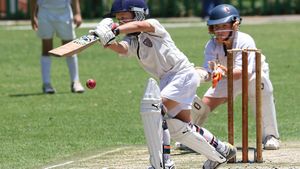The University Grants Commission (UGC) has responded to the mounting pressure from stakeholders by extending the deadline for feedback on its controversial draft UGC Minimum Qualifications for Appointment and Promotion of Teachers and Academic Staff Regulations 2025. Initially set for February 5, 2025, the deadline has now been pushed back to February 28, 2025, allowing educators, researchers, and institutions more time to voice their opinions.
According to the official notice issued by UGC on February 6, 2025, the extension was granted "in view of requests received from stakeholders to extend the last date to submit feedback on the draft UGC regulations 2025." This draft was made available on the UGC's website beginning January 6, 2025, sparking widespread discussion and debate.
The new draft regulations propose significant changes to the hiring criteria for faculty positions, allowing candidates who have successfully passed the UGC-NET, regardless of their undergraduate and postgraduate fields, to be considered for teaching roles. This means, for example, someone with a background in history could qualify to teach science if they clear the necessary competitive examination.
Another key aspect of the draft includes alterations to the selection process for vice-chancellors, which will now incorporate professionals from academia, research institutions, public policy, public administration, and industry within the eligibility criteria. M. Jagadesh Kumar, Chairman of the UGC, supported these proposed changes, asserting during a statement to ANI, "This will remove confusion and ensures transparency."
The debate around UGC's regulations has stoked considerable political controversy, culminating in protests led by prominent figures including Congress leader Rahul Gandhi. Speaking at a demonstration held by DMK students at Jantar Mantar, Gandhi accused the RSS of attempting to monopolize India’s diverse histories. "RSS is attempting to enforce a single idea, history, tradition, and language across the country," Gandhi highlighted, his remarks underscoring the rising tensions surrounding the UGC's new guidelines.
On the political front, the draft regulations have received backlash not only from the Congress party but also from various regional parties. A resolution calling for the withdrawal of the draft regulations was passed by the Tamil Nadu Assembly on January 9, 2025. Following this, six states—Ihimachal Pradesh, Jharkhand, Kerala, Tamil Nadu, Telangana, and Karnataka—adopted a resolution during the State Higher Education Ministers' Conclave, requesting the UGC to reconsider the controversial regulations.
The backlash against the UGC draft goes beyond mere political criticism, with numerous educators and stakeholders expressing concerns over the impact of these proposed changes on educational standards. Many believe the new guidelines, if adopted, could potentially diminish the quality of higher education by allowing candidates without relevant backgrounds to enter teaching posts.
Despite the significant outcry, supporters of the draft regulations believe they are a necessary step toward modernizing the educational framework of Indian higher education. Proponents argue these changes will improve the standard of teaching and academic experiences if properly implemented.
The UGC has opened the floor for additional feedback through email at [email protected], encouraging more stakeholders to submit their comments before the new deadline of February 28, 2025.
Whether this extended deadline will calm the rising tides of dissent remains to be seen, but it does highlight the UGC's awareness and responsiveness to the concerns of the academic community. The coming weeks will be pivotal, as educators, politicians, and the public closely monitor how the UGC navigates the challenges of reforming academic standards amid growing opposition.
Only time will tell if these proposed changes will yield improvements or if they will continue to spark unrest within the diverse educational ecosystem of India. Stakeholders await the UGC's following moves with cautious optimism, hoping for resolutions conducive to maintaining high educational standards without compromising the integrity of India's diverse academic heritage.



